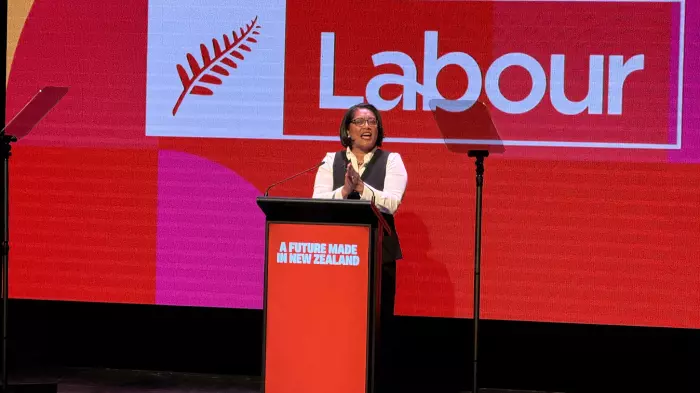BusinessDesk investments editor Frances Cook responds to emails from readers each week, answering questions about money. Below, you will find her expert advice. Send your questions to [email protected].
Hey Frances!
I love your content and saw your post yesterday about people having questions they’d like answered. I got a broad one for you.
I’m 37 & single and will be fortunate enough to be mortgage-free in early 2024.
This leads me to need to make some big decisions on where I’ll direct those fortnightly payments instead. I’ve no idea where to start!
- Into a savings account and save up for house renovations? Nice to do, but I would need a LOT of money, and my house is totally livable.
- Increase my KiwiSaver contributions? (Currently 4%)
- Start a separate investment fund with my Kiwisaver provider. Is it considered diversification if I go with the same ‘active growth’ for both my KiwiSaver and investment fund?
- Investment property. This option petrifies me, but I’m told it’s the only way to have a decent retirement.
- See a financial advisor. How on earth do you pick one?
Thanks!
K.
Hi K,
How fantastic – mortgage-free before you’re 40.
If you want to share the strategies you’ve used to get there, please feel free to write in again. I know many readers would be interested to know how you did it.
Look, I'll be honest: your comment about investment property being the "only way" to get a decent retirement has triggered a strong response in me. But let's answer your full question before I flame up.
Some balance
I do have thoughts on where you could put that money to boost your financial future.
But I also have a couple of thoughts on fun spending. Have you considered including that, too?
I’ve no doubt that you’ve worked hard to get here. We all come from different situations, of course, and different financial goals are more achievable for different people. But even if you’re someone who had a little help to get here (and especially if you’re not), this goal will have involved saying no to some things I’m sure you wanted in order to get that mortgage annihilated.
So what about deciding on a certain percentage of those former mortgage payments and directing them to fun money?
You’ve got a roof over your head, which gives you fantastic stability for the future. Yes, some investments will be important for your future.
But you can take your foot off the gas a little if you like.
10 or 20% of that former mortgage money could go towards something that just makes your life a little brighter – travel, those home renovations, or something else that you enjoy.
Why not?
It’s important to be financially stable, but it’s also important that we remember what that money is for.
It’s to help us live a good life that we enjoy, both now and in the future.
You’ve done so well – time to enjoy a little, too.
Increase KiwiSaver?
You mention that you're considering whether to increase KiwiSaver.
I'm a huge fan of the scheme, and it's great that you're part of that. The fine print, though, is that I don’t love the idea of putting in more than 3%.
Putting in 3% of your salary means you get the full employer match and the full government contribution.
Those are perks well worth having, and you only get them if you put money in each year.
After that 3%, though, you're just locking money away until 65, or a first home, with not as much benefit.
You already have a home, so that option for accessing it is off the table.
You might decide, as you continue to hit financial goals, that you want to retire early. Or start a business. Or even just pause and travel for a year.
You can’t access your KiwiSaver money for that.
But your second suggestion is an excellent middle ground.
A new investment fund?
Your suggestion of starting a new investment fund with your KiwiSaver provider, but outside the KiwiSaver system, is one that could work well for you.
You already like the results you're getting in your KiwiSaver (I hope) and have seen the fund system at work, so you have some experience of what to expect.
You get a good mix of investments, with lots of companies included in the fund and a vetted, professional investing team looking after it without needing much involvement from you.
And you get all of this while still having access to your investments if you decide you want to access the money for something else at a certain point.
It's a gentler approach to investing on your own. The training wheels are on if you like.
You can also choose to open an account with one of the online shares platforms and get a similar result by buying into index funds or ETFs.
If you do that, read a couple of books on investing first, just to make sure that you feel confident with what you're doing.
If you want to stick with a fund with your KiwiSaver provider, that's a fine option, too.
You mention a financial adviser who could also help you with shares if that's what you would like to do. Here's a guide I wrote on how to find one.
Investment property?
I admit, your comment about property investment is what made me decide to answer your letter this week.
Because ah … it sparked a strong reaction in me. In the form of “pshhhhh, not at all!”
Look, for those who want to invest in property, it can be a good option. But is it the only option? Not even close.
If property terrifies you, as you say, then I would actually warn you away from it.
Property is a very hands-on investment. You need to stay across any law changes for your responsibilities as a landlord, you need to keep it maintained, you need to watch market rents and adjust accordingly, you need to respond to requests from tenants, and you need to be ready to deal with the occasional tenant who is extremely unreasonable, and yet, still in your (very expensive) investment.
The reward for that is making money. But it’s not easy, and it’s certainly not a make-money-while-you-sleep situation.
Yes, you can get a property manager, but you'll still be asked to sign off on decisions, know your responsibilities, find a property manager who's actually decent, and then pay them a percentage of rent.
If you don’t want to do it, then don’t. It really is that simple.
Investing in shares, using a fund outside of KiwiSaver, is perfectly fine as a way to grow your money.
It will ask less from you, and it’s quite simple to learn the basics of how it works so that you’re comfortable with where your money is going.
People make all sorts of arguments about whether property or shares are better, and frankly, I think any number crunching on that point is usually done in a way to support whatever point of view the person had to begin with.
It comes out in the wash pretty similarly.
What is different is how hands-on you'll need to be and how emotionally taxing it might become.
From what you say about how it makes you feel, shares seem to be the better option.
Send questions to [email protected] if you want to be featured in the column. Emails should be about 200 words, and we won't publish your name. Unfortunately, Frances is not able to respond to every email received or offer individual financial advice.
Information in this column is general in nature and should not be taken as individual financial advice. Frances Cook and BusinessDesk are not responsible for any loss a reader may suffer.














